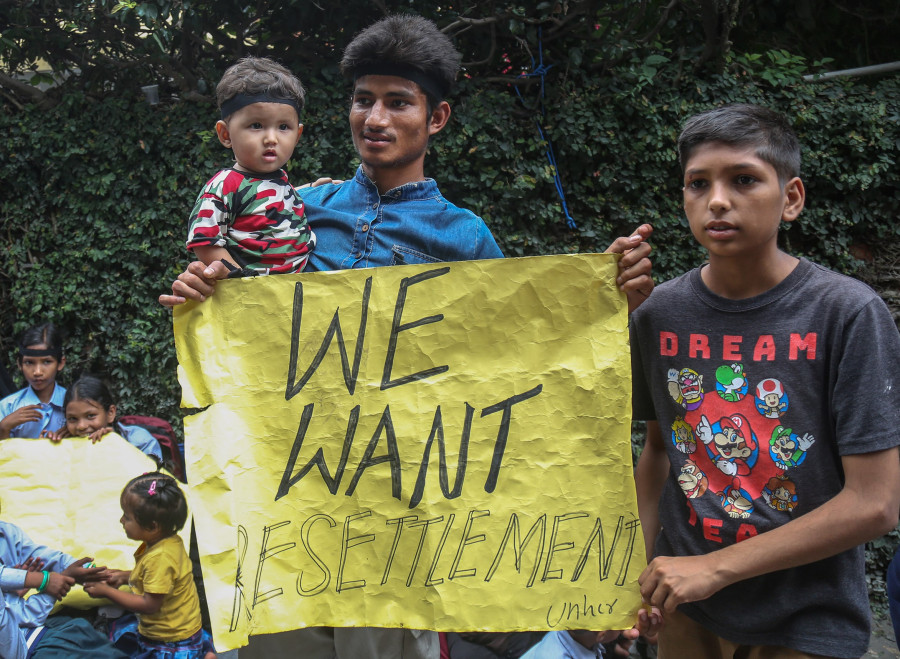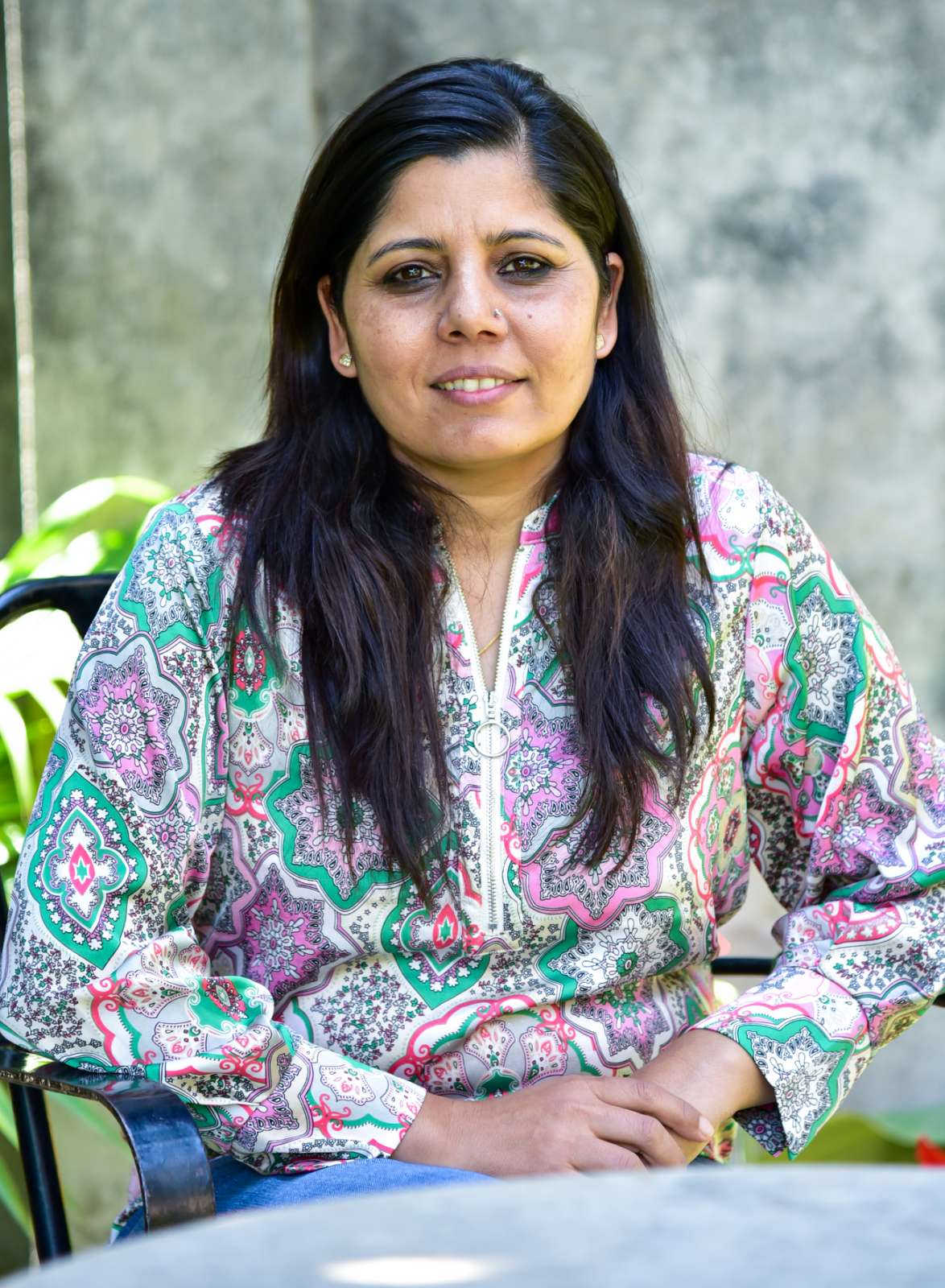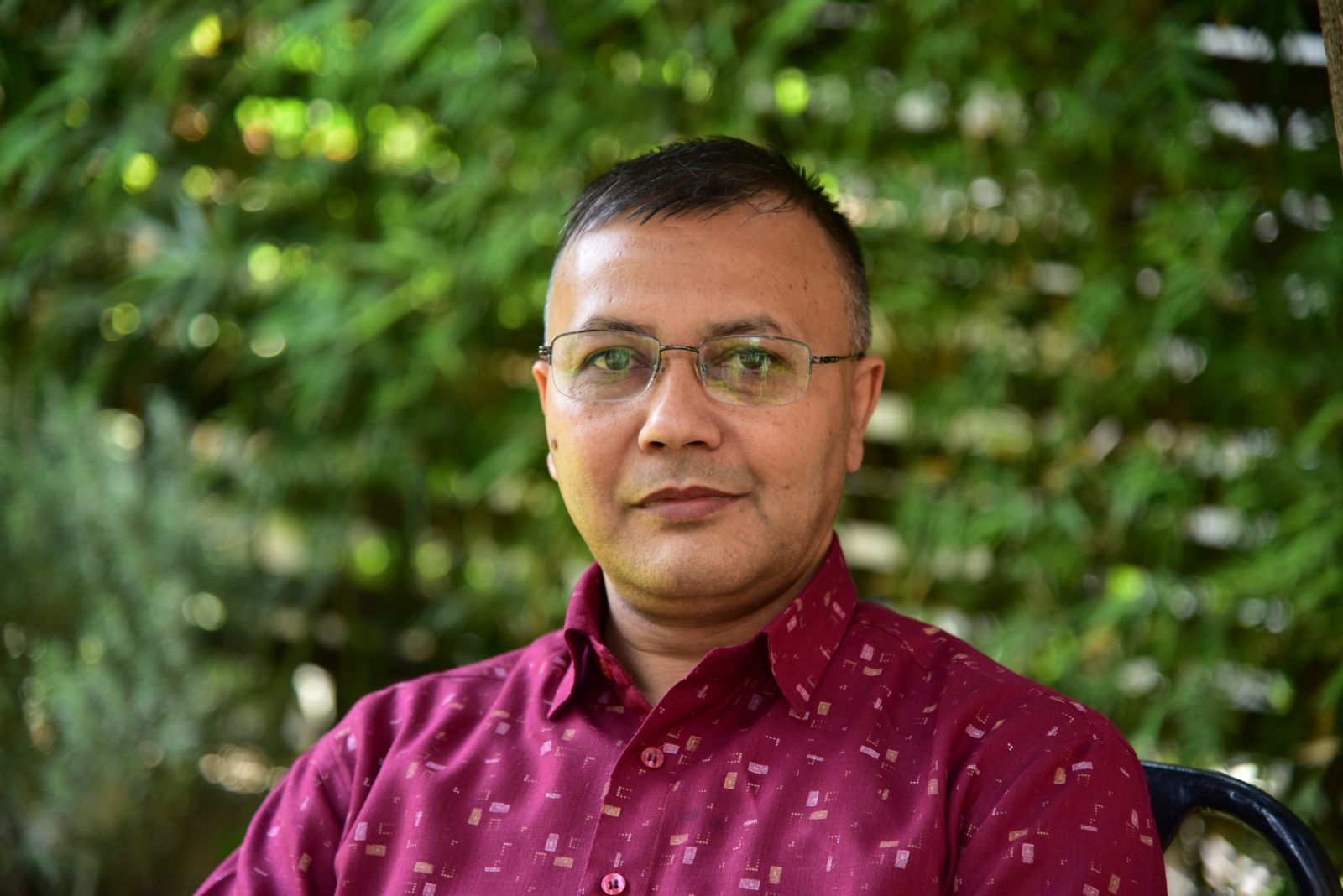Columns
Protecting vulnerable refugees
A failure to prosecute the culprits in the fake Bhutanese refugee case may tarnish Nepal’s image.
Neetu Pokharel & Som Niroula
The institutionalisation of corruption in politics and government has derailed the value of democracy, the rule of law, and human rights in Nepal. One such instance is the recent controversy over the making of fake Bhutanese refugees by misusing state mechanisms and with the direct involvement of high-level government functionaries. Such actions not only damage the integrity of Nepal’s political system but also erode the faith of the national and international agencies in the country. Additionally, it undermines the government’s role towards its citizens and refugees. As we observe World Refugee Day today, we must consider how the recent fake Bhutanese refugee scam has tarnished the image of refugee communities worldwide and why it is a serious crime.
Refugees in Nepal have been facing various forms of discrimination in the camps, including lack of access to education, health, food, housing and social security. Although the Nepali state has actively facilitated the third-country relocation of the Bhutanese refugees, the manipulation of refugee data and the misuse of its resources in turning Nepali citizens into fake Bhutanese refugees calls into question its commitment to protecting refugees.
Protection practices vary
In the early nineties, almost 113,000 Nepali-speaking Lhotshampas from southern Bhutan were evicted by the repressive government of the time. The Lhotshampas, subsequently called Bhutanese refugees, first arrived in India and were further pushed by the Indian state to Nepal’s eastern plains. Some Nepali-speaking Bhutanese citizens still linger in various prisons of Bhutan as political prisoners. The refugee crisis has failed to resolve even after several rounds of dialogue between the Nepal and Bhutan governments, primarily due to the reluctance of the latter. India’s role in resolving the crisis has hardly been positive, and Bhutan continues to play the diplomatic card, flaunting its Happiness Index in front of Western governments.
The Bhutanese refugees stayed about 18 years in the several camps of Jhapa and Morang, waiting to return to their homes. However, several rounds of dialogue among the political parties and civil society organisations in the camps for their resettlement failed to create a safe and dignified environment for their return. Thanks to a resettlement programme, around 113,500 refugees have been resettled in the United States, Canada and Australia, among others.
Similarly, around 400 Myanmarese citizens who were forced to leave their country are living in Nepal. They live precarious life as they do not have identity cards. The Nepal government does not support their food, education, health, care, and protection. The role of the United Nations Human Rights Council (UNHRC) does not seem proactive and supportive of Rohingya refugees compared to their support of the Bhutanese refugees. Though the Nepal government has not ratified the Refugee Convention 1951, it has the responsibility for the protection and care of the people seeking refugee status in Nepal since the country is the state party of most of the international human rights conventions that guarantee of human rights of people.
The government’s role in responding to the need of Tibetan refugees is also different. An estimated 20,000 Tibetan refugees still live in Nepal. These refugees have faced problems while accessing public services and including identity cards. The children of the refugees also face difficulty pursuing higher education due to a lack of proper documentation. What’s more, the Tibetans are often treated by the Nepal government as illegal migrants instead of providing them with refugee status. This clearly shows the vulnerability of the different refugees in Nepal.
Laws and policies
The lack of laws and policies makes the refugee communities more vulnerable to securing legal identity and humanitarian support. Nepal is the state party to the nine major treaties which provide the obligation for equal treatment and non-discrimination though the country is not a state party to the 1951 Convention on Refugees. Moreover, Nepal does not have any laws or policies related to refugees. The government’s response to the refugees should be guided by the principle of respecting human rights and nondiscrimination.
The recent Bhutanese refugee scam has drawn the attention of national and international communities. It is not just the issue of corruption; it is an organised crime against the state and a reflection of corruption institutionalised by state agencies. First, the critical condition of the rule of law in the country has been aggravated more in this case. The government and judiciary should be prompt in a fair investigation and prosecution of those directly or indirectly involved in luring the people and in this crime.
A failure to properly investigate and prosecute the culprits may raise expose the incompetence of government and judiciary at the national and global levels. Second, the recent scam should not undermine the rights of the existing refugees in Nepal. The issues of social protection, safety, livelihood and socio-economic rights, along with the dignified life of the refugees, should not be shadowed or kept in low priority amidst the hype of this fake refugee scam. The government and UN agencies should work and collaborate to provide humanitarian assistance and protection of refugees proactively. They should also register refugees and give them a clear identity to avoid manipulation in the future.
The Nepal Government’s commitment to nondiscrimination principles and respect for human rights also applies to refugees. The corruption, crime and cheating in the name of refugees should not result in further victimisation of the refugees. Civil society organisations, international agencies and politicians should continue to demand accountability of the government and justice-providing agencies, also help the government in addressing the refugee scam cases fairly and protecting the rights of refugees in Nepal.




 18.12°C Kathmandu
18.12°C Kathmandu
















